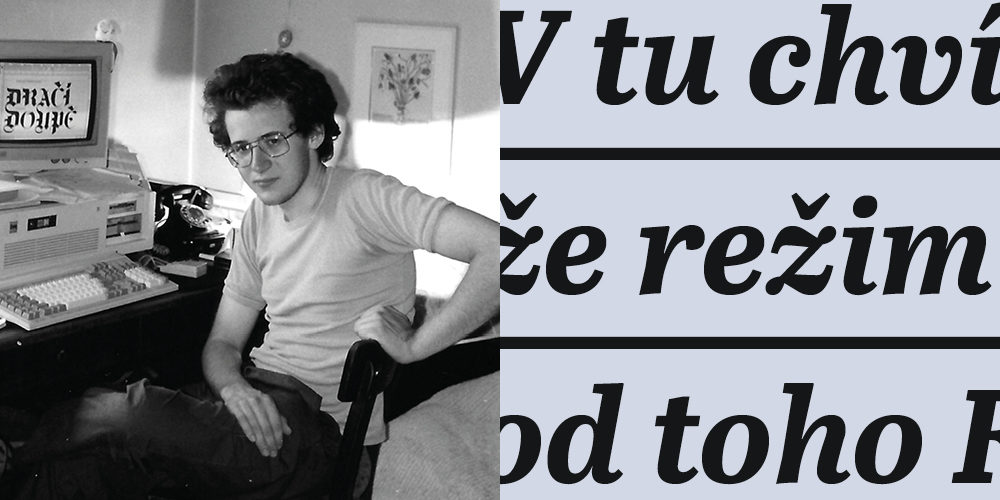
In the autumn of 1989, Martin Klíma was studying at the Faculty of Mathematics and Physics, running a magazine devoted to science fiction literature, and planning with friends to form an independent student organization. He spoke from the podium on behalf of the students at the November 17th rally in Prague’s Albertov Square. He shouted into the amplifier:
“Subjugation is worse than death!”
The communist police dispersed the peaceful student procession on Národní Street with unprecedented brutality. Martin went on strike with his classmates in protest and became a member of the national student strike committee.
Today, the successful publisher of board and computer games says that only certain images from the hectic days of the Velvet Revolution stand out in his memory. For example, when rumors spread in Prague on Tuesday November 21st that the communists wanted to call out the People’s Militia and the army against the strikers. The students subsequently issued a statement “to all governments of the world and the UN” defending their action and asking for support.
Martin Klíma and a delegation of students went to the embassies of world powers to deliver the statement. They first went to the US embassy, where they reportedly received a rather formal and cold reception. With apprehension, they went to the Soviet embassy in Prague’s Bubeneč district. Some long minutes passed: “A man came in whose function and position I still do not know – he did not introduce himself to us – and he took our paper, read it, and said: ‘In my opinion, you have nothing to fear.’” At that moment Martin Klíma realized that the communist regime in Czechoslovakia had ended.
Departure
In the 1980s, communist regimes were collapsing economically and socially. Falling behind the free world could no longer be disguised, and citizens invoked their rights. Rumors of change were coming from the Soviet Union in the era of Mikhail Gorbachev. Our country had been ruled for a second decade by the same set of normalization apparatchiks, who until then had devotedly listened to their comrades from Moscow, but did not want to hear about so-called perestroika – reconstruction.
When the totalitarian regime in our country began to collapse in November and December 1989 under the enormous onslaught of civil unrest, almost 80,000 Soviet soldiers, on whose threat the local regime relied, remained in the barracks – they were ordered not to intervene. In February 1990, the new president, Václav Havel, arrived in Moscow for an official visit. The Soviets apologized for the occupation in August 1968, and the foreign ministers concluded an agreement on the withdrawal of Soviet troops from Czechoslovakia. The negotiations were attended by the MP and musician Michael Kocáb. On 24 June 1991, to celebrate the event, he organized a concert with his band Pražský výběr in Prague’s Sport Hall, with the world-famous rocker Frank Zappa as a guest, and the whole show ended with the symbolic departure of a dummy of a Soviet soldier in a helicopter. Three days later, the real “last Soviet soldier,” Eduard Arkadyevich Vorobyov, the commander of the Central Group, left our country. In total, 73,500 Soviet soldiers, 39,000 of their family members, 1,220 tanks, 2,500 infantry combat vehicles, 105 aircraft, 175 helicopters and 95,000 tons of ammunition left Czechoslovakia.



